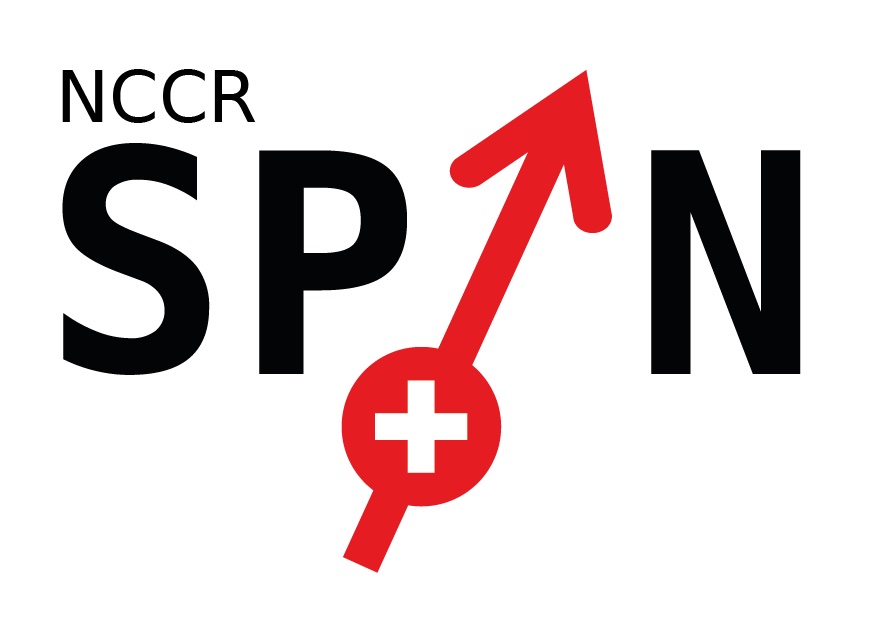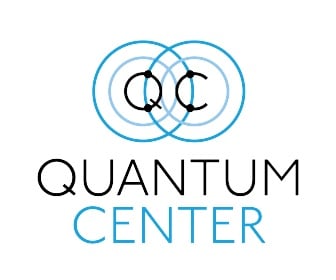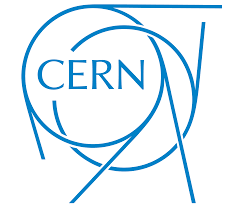Swiss Centers and Initiatives
Despite its relatively small size, Switzerland maintains a world-class quantum ecosystem.
What makes Switzerland special is the combination of groundbreaking research, pioneering startups, broad-based excellence across subfields, and a deeply embedded international outlook. Learn more about some of our leading institutions and initiatives that nurture this community of collaboration.
National Initiatives

Swiss Quantum Commission
The Swiss Quantum Commission, beginning in 2023, is a new national body tasked with implementing the Swiss Quantum Initiative, which aims to solidify Switzerland’s position among leading nations in quantum research and innovation. Hosted by the Swiss Academy of Sciences, the Commission is composed of leading quantum researchers from major Swiss institutions. It is tasked with defining research calls, coordinating infrastructure, developing curricula, and strengthening international partnerships.

NCCR SPIN
This National Center for Competence in Research – SPIN, which began in 2020, develops reliable, fast, compact, scalable spin qubits in silicon. The NCCR SPIN team consists of researchers from the University of Basel, IBM Research – Zurich, ETH Zurich, and EPF Lausanne. The team members come from several disciplines, including quantum physics, materials science, engineering and computer science. NCCR SPIN is designed to promote close collaboration between theory and experimentation, and between academia and industry.
Universities and Research Centers

The Quantum Center at ETH-Zurich
Launched in 2020, the Quantum Center at ETH Zurich encompasses 30 research groups from six departments. It interconnects quantum research and teaching across ETH departments and serves as a Zurich-wide contact point for larger projects, including collaborations with industrial partners and funding through Swiss and international grant agencies as well as donations.

ETHZ-PSI Quantum Computing Hub
The ETHZ-PSI Quantum Computing Hub was established in May 2021 as a joint center for the development of quantum computers. It brings together the resources of ETH Zurich with the Paul Scherrer Institute (PSI), the largest research institute for natural and engineering sciences in Switzerland. The Hub’s central aim is to target the technical and scientific challenges on the way to realizing large-scale quantum computers based on both superconducting circuits and trapped ions.

Center for Quantum Science and Engineering
The Center for Quantum Science and Engineering at the École Polytechnique Fédérale de Lausanne (EPFL) serves as the research and teaching hub for all quantum efforts at this federal institute of technology. The Center promotes and supports collaborative research through the creation of collaborative grants, multidisciplinary education, and innovation. Its two key focus areas are 1) applied quantum algorithms and data science and 2) quantum hardware materials and systems.

Basel Quantum Center
The Basel Quantum Center comprises 15 research labs at the University of Basel, focused broadly on condensed matter, atomic, molecular and optical systems. A subset of these researchers are also involved in the affiliated Center for Quantum Computing and Quantum Coherence (QC2), which is focused on determining if a scalable quantum computer – the holy grail of quantum science – is allowed under realistic conditions by the laws of nature. The Quantum Center also supports a cross-border postdoc cluster in collaboration with the Albert-Ludwigs University in Freiburg, Germany.
![]()
Geneva Quantum Center
The Geneva Quantum Center at the University of Geneva leverages the expertise of the University of Geneva, especially in quantum communications, in order to advance research, training, and outreach. The core research group, the Quantum Information & Communication cluster, encompasses laboratories working on quantum technologies, quantum repeaters & memories, and quantum theory. The quantum technologies group focuses on photon sources, interfaces, and detectors in quantum communication, while the theory group addresses nonlocality, thermodynamics, and device-independent information processing.
Additional nodes of research can be found at other universities:
- The Lucerne University of Applied Sciences (HSLU) supports three research groups: One on Quantum Advantage in Finance, another on Quantum Cryptography in Practice, and a third on NV Diamond Sensors.
- The University of Applied Sciences and Arts Northwestern Switzerland (FHNW) is undertaking research in applied quantum computing for the life sciences.
- The Università della Svizzera italiana (USI) supports a research group in cryptography and quantum information.
Ecosystem Builders

CERN Quantum Technology Initiative (QTI)
The CERN Quantum Technology Initiative (QTI) is an international research program exploring how quantum technologies can serve high-energy physics, as well as societies more broadly. Through the QTI, CERN is disseminating enabling technologies such as quantum state sensors and time synchronization protocols. The QTI is also building an academia–industry training programme to accelerate the building of new competencies in quantum technologies, from the high school to senior researcher level. CERN is also a key organizer of World Quantum Day.

Geneva Science and Diplomacy Anticipator (GESDA)
The Geneva Science and Diplomacy Anticipator (GESDA), an independent foundation created by the Swiss and Geneva governments, has made quantum technologies into one of its key focus areas. Its Science Breakthrough Radar tracks predicted trends in quantum computing, communication, and sensing on five, ten, and twenty-five year time horizons. Working with leading scientists, GESDA is also anticipating use cases for quantum technologies to reach the UN Sustainable Development Goals (SDGs), and is planning a competition in collaboration with XPRIZE to democratize quantum computing.
QuantumBasel
QuantumBasel is a center of competence for quantum and artificial intelligence founded in 2022. Located on the new uptownBasel innovation campus, QuantumBasel is working to create the first commercially viable quantum center in Switzerland. It offers companies, start-ups and leading research institutes specialized access to quantum computing and high-performance computing and support services. Embedded within the QuantumBasel initiative is QAI Ventures, an investment fund and accelerator program focused on startups in quantum and AI technologies.